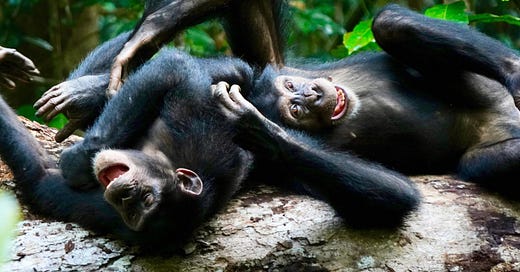The Role of Play in Adult Chimpanzee Cooperation
Insights from Taï Forest: How Play Builds Social Bonds and Enhances Teamwork
Play is often seen as a hallmark of childhood, but new research shows its significance extends into adulthood, particularly in highly social species like chimpanzees (Pan troglodytes). In the Taï Forest of Côte d’Ivoire, wild chimpanzees engage in playful behaviors that foster cooperation, resolve conflicts, and prepare them for collaborative activities…
Keep reading with a 7-day free trial
Subscribe to Primatology.net to keep reading this post and get 7 days of free access to the full post archives.



